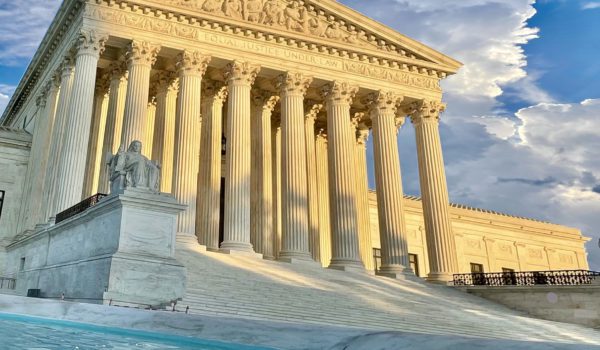With the United States Supreme Court’s 2022 Term upon us, Frost Brown Todd is taking time to reflect on the decisions of the Court’s 2021 Term and how they impact our clients and their businesses. Legal landscapes change—and the 2021 Term was no exception. The 2021 Term was packed with high-profile and emotionally-charged decisions. But other decisions by the Supreme Court—though they may not have garnered intense press coverage—will nonetheless have significant ramifications in many business sectors and local governments throughout the United States. These opinions cover a broad range of topics, including copyright, bankruptcy, ERISA, federal arbitration, and limits on the regulatory authority of federal administrative agencies.
In the series of discussions below, members of Frost Brown Todd’s Appellate Practice Group have analyzed those rulings from the 2021 Term that are most consequential for business, industry, and local government. Each summary also contains key takeaways and strategies to navigate these opinions’ uncharted waters. Click below to read the full article about each case.
January 24, 2022 – Hughes v. Northwestern University, 142 S. Ct. 737
The Supreme Court clarified that under the Employee Retirement Income Security Act, retirement plan administrators have a wholistic duty to avoid excessive fees and to facilitate wise investment decisions for plan participants.
February 24, 2022 – Unicolors, Inc. v. H&M Hennes & Mauritz, L.P., 142 S. Ct. 941
The U.S. Supreme Court held that the “safe harbor” provision in the Copyright Act of 1976 protects copyright applications that contain inaccurate information from being invalidated when the inaccurate information arises from the applicant’s lack of knowledge, no matter if that lack of knowledge is legal or factual.
The Supreme Court’s Quartet of Arbitration Decisions
Mar. 31, 2022 – Badgerow v. Walters, 142 S.Ct. 1310
May 23, 2022 – Morgan v. Sundance, Inc., 142 S.Ct. 1708
June 6, 2022 – Southwest Airlines Co. v. Saxon, 142 S.Ct. 1783
Three of these cases pulled back the scope of the FAA in certain respects, by restricting federal jurisdiction to hear petitions to confirm arbitration awards (Badgerow v. Walters); making it easier to prevail on a claim that a party waived its right to compel arbitration (Morgan v. Sundance, Inc.); and expanding the scope of the FAA’s provision exempting employment contracts for workers engaged in foreign or interstate commerce (Southwest Airlines v. Saxon).
June 15, 2022 – Viking River Cruises, Inc. v. Moriana, 142 S.Ct. 1906
The fourth opinion, Viking River Cruises, Inc. v. Moriana, reaffirmed the enforceability of arbitration clauses require arbitration of individual claims, while precluding “class” arbitration that aggregate large numbers of claims in a single proceeding. But Moriana also clarified that the FAA does not require enforcement of provisions that simply require individuals to waive their rights to proceed with certain types of rights and remedies.
April 28, 2022 – Cummings v. Premier Rehab Keller, P.L.L.C., 142 S. Ct. 1562
The U.S. Supreme Court held that a plaintiff may not recover damages for emotional distress in a private action under the anti-discrimination provisions of the Rehabilitation Act of 1973 or the Patient Protection and Affordable Care Act.
Court Strikes Down Arbitrary Fee Increases for Debtors in Bankruptcy Cases
June 6, 2022 – Siegel v. Fitzgerald, 142 S. Ct. 1770
The federal Constitution authorizes Congress to establish “uniform Laws on the subject of Bankruptcies throughout the United States.” In 2017, Congress enacted a significant fee increase for debtors in bankruptcy cases that applies in only 48 of the 50 states. Is this a “uniform” law on the subject of bankruptcies? No, according to this unanimous U.S. Supreme Court decision.
Maine’s “Nonsectarian” School Choice Policy Violates Free Exercise Clause
June 21, 2022 – Carson, as next friend of O.C. v. Makin, 142 S. Ct. 1987
The Supreme Court held that under the Establishment Clause of the First Amendment, the state of Maine could not provide tuition assistance for students to attend non-religious private schools, while refusing to provide such assistance if the student chose to attend a religious private school.
Court Constrains EPA’s Authority in Applying the Major Questions Doctrine
June 30, 2022 – West Virginia v. Environmental Protection Agency, 142 S. Ct. 2587
The Supreme Court ruled that the Environmental Protection Agency does not have authority under the Clean Air Act to shift electricity generation away from coal toward renewable energy sources as part of a regulatory approach to climate change.
Coach’s Post-Game Prayer on Football Field Protected by the First Amendment
June 27, 2022 – Kennedy v. Bremerton School District, 142 S. Ct. 2407
In the most significant case to address the school/religion balance in at least two decades, a six-member majority of the U.S. Supreme Court held that the Free Exercise and Free Speech Clauses of the First Amendment protected high school football coach Joseph Kennedy’s personal religious observance after a football game from restriction by his employer, the Bremerton School District.

